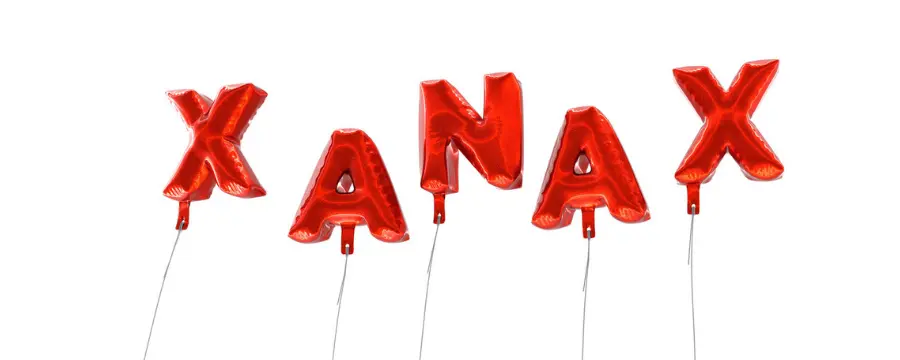Table of Contents
What is Xanax
Xanax Withdrawal Symptoms
Physical Withdrawal Symptoms of Xanax
Psychological Withdrawal Symptoms of Xanax
Withdrawal Timeline
Treatment
Xanax Withdrawal: Physical and Psychological Symptoms
Depending upon the user, weaning off medications can be a tricky process. With long-term use, the body becomes more reliant on the drug, which can lead to severe withdrawal symptoms when the drug is no longer present. To better understand the effects of Xanax withdrawal, learning about the drug itself is critical. Consulting an addiction specialist is also helpful for the treatment of withdrawal effects.
What is Xanax?
Benzodiazepines are a class of drug that can be prescribed in the treatment of anxiety disorder, panic disorder, insomnia, and even seizures. They are also sometimes used off-label to help with muscle spasms though this has not been approved by the FDA. They act on the central nervous system and produce a calming effect by enhancing the effects of GABA, a naturally-occurring chemical in the body.
Xanax, or alprazolam, is a type of benzodiazepine that is highly addictive when taken in high doses. Even at therapeutic doses, it is possible to develop a bensodiazepine dependence , which can then lead to difficult withdrawals. GABA is a natural sedative in the brain, responsible for slowing down particular functions and muting reactions to stress. Over time, Xanax may cause the brain to stop producing GABA naturally, making the body completely reliant on the drug to achieve the same calming effects most people experience daily. If the brain becomes dependent on Xanax and it’s removed from the system, the brain immediately begins to struggle to regain its natural sense of balance and order. Not only does this lead to increased risk of addiction, but intense withdrawal symptoms. This drug’s addiction potential can have some serious consequences and it is important to keep informed.
Xanax Withdrawal Symptoms
There are two forms of Xanax withdrawal symptoms – physical and psychological – both which can have detrimental effects on the body. Below, we’ll discuss these withdrawal symptoms and how they affect a person:
Since Xanax is a fast-acting drug with long-lasting effects, severe adverse effects can be had if it is not weaned off slowly.
Physical Withdrawal Symptoms of Xanax
Xanax, being a central nervous system depressant, minimizes acute symptoms of stress, anxiety symptoms, and panic attacks. Xanax has also been used to reduce the risk of epileptic seizures, although this form of treatment is not considered mainstream.
A physical dependence means you need to take a certain amount of the drug to function normally. Removing Xanax abruptly without the supervision of a medical professional can result in numerous physical disruptions, including imbalanced blood pressure levels, high or low body temperature, respiration issues, and rapid heart rate. In extreme cases, some experienced severe symptoms of benzodiazepine withdrawal such as seizures that led to comas, and even death.
To avoid these risks, it’s important to notice the warning signs of Xanax withdrawal in yourself or loved ones. Common symptoms include:
- Headache
- Delirium
- Muscle aches and muscle pain
- Tension in the jaw and/or teeth pain
- Nausea
- Vomiting
- Weight loss
- Memory impairment
- Blurred vision
- Hypertension
- Diarrhea
- Finger numbness
- Tremors
- Tingling in arms and legs
- Alteration in sense of smell
- Loss of appetite
- Insomnia
- Cramps
- Heart palpitations
- Sensitivity to light and sound
- Excessive perspiration
- Fever
Psychological Withdrawal Symptoms of Xanax
Because Xanax has a direct impact on the brain, a user’s psychological state will be impacted if Xanax is abruptly removed from the system. Here are a few of those symptoms of a benzodiazepine dependence:
- Nervousness or tension
- Confusion or depression
- Irritability
- Insomnia or restless sleep
- Paranoia and fear
- Suicidal ideation
- Withdrawal from family, friends, or hobbies
- Heightened senses
- Anxiety and panic
Experiencing these effects are often referred to as Benzodiazepine Withdrawal Syndrome, which encompasses multiple stages of withdrawal. Starting with anxiety and insomnia, those detoxing from Xanax will often feel like they have a prolonged flu. This is followed by the return of whatever psychological issues the person was facing before going on Xanax, which makes it difficult not to relapse.
The severity of withdrawal symptoms varies greatly depending on the amount of Xanax a person was taking prior to detoxification, and how long he/she was on the medication. Although symptoms of benzo withdrawal can occur even if one is taking Xanax exactly as prescribed, intense withdrawal is often linked to those who misuse or are addicted to the medication.
Withdrawal Timeline
For those looking to begin treatment to wean themselves off Xanax, they can expect to go through four stages of withdrawal. The severity and duration of each stage varies, and may look differently for each user depending on brain chemistry and personal circumstances. Here is what a withdrawal process can typically look like:
Stage 1: The Beginning: Acute withdrawal symptoms often begin to surface within 6–12 hours of the user’s last dose. Initial symptoms of insomnia and anxiety are common during this time, and are often the first symptoms one will experience.
Stage 2: The Rebound: Lasting typically between 1-4 days, this stage is characterized by the continuance of insomnia and anxiety; this is often coupled with flu-like symptoms such as nausea, diarrhea, and vomiting.
Stage 3: The Downward Slope: Symptoms of withdrawal from Stages 1&2 often linger for another 5-14 days during this period. Most often, new symptoms do not occur during this stage.
Stage 4: The Return: The last stage is the hardest for some, as this stage can trigger the return of unwanted psychological conditions. Symptoms of anxiety, and other rebound symptoms of the physical or mental health conditions it was meant to treat may return. Stage 4 presents itself two weeks after the last dose.
Treatment
Detoxing from Xanax is not an easy task. This is especially true for those with a history of substance use disorder. Attempts to go it alone or quit “cold turkey” are not recommended. A tapered dose reduction is typically what’s done and the help of a medical detoxing facility is most recommended, since medical staff will be present to help in the case of severe withdrawal symptoms that could be life-threatening.
For those pregnant or breastfeeding, it is important to note that benzodiazepines can pass through into breast milk, and there are implications for the health of the fetus as well, with a potential risk of neonatal withdrawal syndrome and other complications.
For management of benzodiazepine withdrawal symptoms, it is important to look for treatment facilities that can help with both types of symptoms simultaneously. At New Choices, our trained medical staff can help you slowly detox from Xanax in the safest method possible. We also do dual diagnoses so both the physical and psychological aspects of withdrawal can be taken care of with a combination of medication-assisted treatment and behavioral therapy, among other treatments. We take a holistic whole-health approach to your recovery and we take care of any existing mental disorders that may contribute to a drug addiction and other physical and psychiatric symptoms.
A generalized anxiety disorder can be caused by a number of things and we can help you develop a personalized treatment plan to tackle it at its roots. Whether it’s a panic or anxiety disorder, post-traumatic stress disorder, or other co-occurring mental health disorders, our counselors can help get to the root of those feelings of anxiety, and we have medical staff too for the physical symptoms too. We know it’s hard to get better when you are distracted by the rebound anxiety and other rebound effects that come with a physiological dependence, so our medical staff are there to support you while you focus on what’s important.
Related: Different Types of Addiction








Leave A Comment